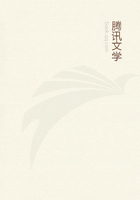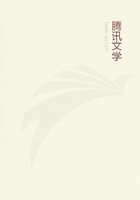The subject of this Essay is intimately connected with those of Essays XI and XII, perhaps the most important of the series.
It has been established in the latter, that human creatures are constantly accompanied in their voluntary actions with the delusive sense of liberty, and that our character, our energies, and our conscience of moral right and wrong, are mainly dependent upon this feature in our constitution.
The subject of my present disquisition relates to the feeling of self-approbation or self-complacency, which will be found inseparable from the most honourable efforts and exertions in which mortal men can be engaged.
One of the most striking of the precepts contained in what are called the Golden Verses of Pythagoras, is couched in the words, "Reverence thyself."
The duties which are incumbent on man are of two sorts, negative and positive. We are bound to set right our mistakes, and to correct the evil habits to which we are prone; and we are bound also to be generously ambitious, to aspire after excellence, and to undertake such things as may reflect honour on ourselves, and be useful to others.
To the practice of the former of these classes of duties we may be instigated by prohibitions, menaces and fear, the fear of mischiefs that may fall upon us conformably to the known series of antecedents and consequents in the course of nature, or of mischiefs that may be inflicted on us by the laws of the country in which we live, or as results of the ill will and disapprobation felt towards us by individuals. There is nothing that is necessarily generous or invigorating in the practice of our negative duties. They amount merely to a scheme for keeping us within bounds, and restraining us from those sallies and escapes, which human nature, undisciplined and left to itself, might betray us into. But positive enterprise, and great actual improvement cannot be expected by us in this way. All this is what the apostle refers to, when he speaks of "the law as a schoolmaster to bring us to liberty," after which he advises us "not to be again entangled with the yoke of bondage."
On the other hand, if we would enter ourselves in the race of positive improvement, if we would become familiar with generous sentiments, and the train of conduct which such sentiments inspire, we must provide ourselves with the soil in which such things grow, and engage in the species of husbandry by which they are matured; in other words, we must be no strangers to self-esteem and self-complacency.
The truth of this statement may perhaps be most strikingly illustrated, if we take for our example the progress of schoolboys under a preceptor. A considerable proportion of these are apt, diligent, and desirous to perform the tasks in which they are engaged, so as to satisfy the demands of their masters and parents, and to advance honourably in the path that is recommended to them. And a considerable proportion put themselves on the defensive, and propose to their own minds to perform exactly as much as shall exempt them from censure and punishment, and no more.
Now I say of the former, that they cannot accomplish the purpose they have conceived, unless so far as they are aided by a sentiment of self-reverence.
The difference of the two parties is, that the latter proceed, so far as their studies are concerned, as feeling themselves under the law of necessity, and as if they were machines merely, and the former as if they were under what the apostle calls "the law of liberty."
We cannot perform our tasks to the best of our power, unless we think well of our own capacity.
But this is the smallest part of what is necessary. We must also be in good humour with ourselves. We must say, I can do that which I shall have just occasion to look back upon with satisfaction. It is the anticipation of this result, that stimulates our efforts, and carries us forward. Perseverance is an active principle, and cannot continue to operate but under the influence of desire. It is incompatible with languor and neutrality. It implies the love of glory, perhaps of that glory which shall be attributed to us by others, or perhaps only of that glory which shall be reaped by us in the silent chambers of the mind. The diligent scholar is he that loves himself, and desires to have reason to applaud and love himself. He sits down to his task with resolution, he approves of what he does in each step of the process, and in each enquires, Is this the thing I purposed to effect?
And, as it is with the unfledged schoolboy, after the same manner it is with the man mature. He must have to a certain extent a good opinion of himself, he must feel a kind of internal harmony, giving to the circulations of his frame animation and cheerfulness, or he can never undertake and execute considerable things.
The execution of any thing considerable implies in the first place previous persevering meditation. He that undertakes any great achievement will, according to the vulgar phrase, "think twice," before he buckles up his resolution, and plunges into the ocean, which he has already surveyed with anxious glance while he remained on shore. Let our illustration be the case of Columbus, who, from the figure of the earth, inferred that there must be a way of arriving at the Indies by a voyage directly west, in distinction from the very complicated way hitherto practiced, by sailing up the Mediterranean, crossing the isthmus of Suez, and so falling down the Red Sea into the Indian Ocean. He weighed all the circumstances attendant on such an undertaking in his mind. He enquired into his own powers and resources, imaged to himself the various obstacles that might thwart his undertaking, and finally resolved to engage in it. If Columbus had not entertained a very good opinion of himself, it is impossible that he should have announced such a project, or should have achieved it.















